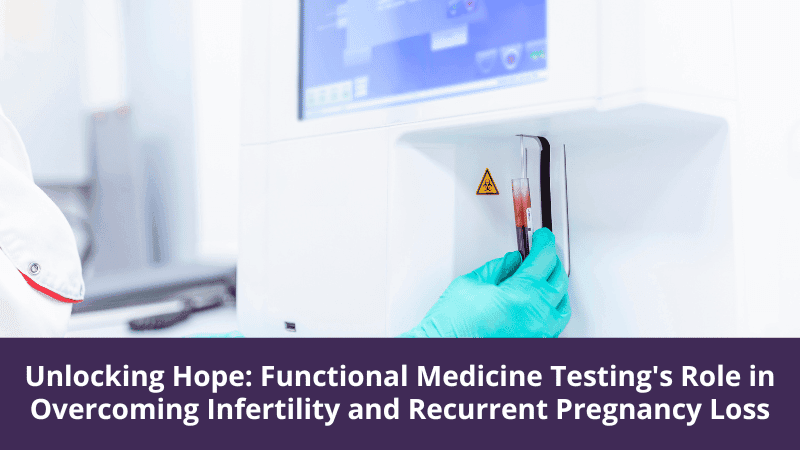Creatine is one of the most well known and self-prescribed sports supplements. It is an amino acid found in meat products and produced in our body at a rate of 1-2g daily. Creatine is primarily found in muscles, and plays an important role in building muscle mass. When creatine was first discovered, way back in the early 1800s, foxes killed in the wild were found to have 10 times the amount of creatine found in domestic foxes, first giving rise to the idea that creatine is influenced by physical activity. Since then, thousands of studies have been conducted on creatine and it is well known that having creatine as a supplement, specifically as creatine monohydrate, does in fact increase muscle mass and performance [1,2].
Is Creatine Sports Specific or are there Other Benefits?
Benefits of Creatine
Generally, creatine is used to support exercise, muscle mass, and strength training, but creatine also plays an important role in energy production, heart health, brain function and fertility. Outside of the skeletal muscles, creatine is found in the heart, sperm cells, brain, retina of the eye, stomach & intestinal lining, skin and hair follicles [1].
Creatine’s role in heart health is extensive, it is involved in blood sugar balancing, regulating cholesterol and reducing homocysteine. Creatine supplementation has shown to reduce cancer risks, slow osteoporosis development, improve brain function, and improve functionality for patients with osteoarthritis and fibromyalgia [1,3,4,5].
Lean Muscle Gains
Creatine is an ergogenic aid, which is any substance shown to improve energy production and exercise performance, giving athletes a competitive edge. Very few sports supplements have undergone the rigorous clinical trials creatine has with over 70% of studies reporting statistically significant positive results… meaning, it is proven to work [1,6].
When used in conjunction with regular exercise, creatine improves lean muscle mass. Creatine helps in gaining muscle by boosting workload and cell signaling which aids muscle repair and new muscle growth. Creatine also raises anabolic hormones, possibly via its role in cholesterol metabolism, which in turn aids muscle development. Another mechanism by which creatine works is by improving cell hydration – creatine holds onto water, drawing water into the cells within lean muscle (where creatine is stored) and increases cell volume [5,7].
How does Creatine Enhance Exercise Performance?
Creatine, when it is given as a supplement, improves force output, power output, increases anaerobic threshold, improves recovery and enhances the body’s adaptation to a new or more rigorous training program. Creatine increases intramuscular phosphocreatine (PCr) stores which increases muscle strength and power in both amatuer and professional athletes. Which makes creatine a suitable supplement for anybody looking to increase the amount of exercise they are doing and specifically their exercise tolerance [5,7].
Energy Production
The primary role of Creatine in the body is the generation of ATP from ADP to produce energy. ATP is the molecule where energy is stored in the body, and ADP is its precursor. Creatine (either made in the body or from food sources) is stored in the body as phosphocreatine; this phosphocreatine combines with ADP to create creatine and ATP. This process is a recycling process – once ATP and creatine is created, phosphocreatine is stored in the muscles and then it is used to create ATP from ADP again as required. As more energy is required, either in times of stress or increased exercise, creatine is required in greater amounts. Giving creatine as a supplement has shown to increase ATP production by up to 15%. That is a significant advantage for athletes for improving their endurance and exercise tolerance [1,5,7].
Cognitive Functioning
Creatine plays a critical role in cognitive functions such as learning, memory, attention, speech, language, Emotions and Movements. The primary role of creatine in the brain is energy metabolism via ATP replenishment.
Supplementing with creatine has shown to reduce mental fatigue in young vegetarians and improve cognitive function in elderly patients. Those on a vegetarian (or low animal protein diet) and elderly people are more likely to be deficient in creatine, so supplementing in these cases is more indicated and their response to supplementation is more significant [5,6].
Impaired creatine-based energy metabolism may lead to mental health issues, specifically depression. Creatine supplementation has shown to improve symptoms of clinical depression, and lower homocysteine levels. Homocysteine is an inflammatory marker and we know that inflammation is often found alongside symptoms of depression. Creatine may also play a role in regulating serotonin, our happy hormone, via improved methylation at the receptor site [1,2,5].
Other neurological conditions in which creatine supplementation has shown promising results include Alzheimer’s disease, Parkinson’s disease, Huntington’s disease and motor neuron disease. The mechanism for this is unclear, however we do know that creatine improves gene expression, has anti-aging and antioxidant properties, all of which are associated with protecting the brain from degeneration [8].
Fertility
Having enough protein in your diet is incredibly important for fertility, and while you can get most of your nutrients from plant proteins, animal protein is superior in making sure your levels are up to scratch for creating and supporting a baby.
The reproductive system requires A LOT of energy, ATP requirements increase and subsequently women require more creatine during menstruation [9].
Likewise for men, sperm production requires adequate creatine, specifically to get the sperm moving. Mitochondria (the home of ATP) is found in abundance in the head of the sperm, which sends energy down to the tail to provide energy for movement. Only the strongest swimmers will make it to the egg [5,9].
Supplementing with creatine around these times reduces the pressure on our body’s to make enough creatine to support these processes.
Once pregnant, a woman’s creatine needs increase again, as it is required for brain development for bub and reduces risks associated with pregnancy for mum. Since creatine is derived from food and made in the body from other amino acids, in times of greater need such as pregnancy (and menstruation), the body will start to make more creatine and reduce the amount that is excreted from the urine (holding onto creatine for use). For some people this mechanism is hindered, often due to a genetic predisposition. In these cases creatine deficiency has been associated with poor growth development for the baby. Supplementing with creatine can ensure the baby is able to grow and improve birth outcomes [9,10].
How do Our Genes Impact Creatine Production
About 50% of our creatine stores come from diet and 50% is de novo (made in the body from other amino acids). Our bodies produce creatine via a two-step process;
- In the first step, glycine and arginine react with each other to generate ornithine and guanidinoacetate. This starts off in the kidneys and moves to the liver for the second step [1,9].
- The second step is the methylation of guanidinoacetate using S-adenosyl methionine (SAM-e) to generate creatine and homocysteine via activation of the enzyme GAMT (guanidinoacetate N methyltransferase)[1,9].
Creatine is then transported to muscles for storage and for ATP production. Methylation is crucial for creatine synthesis, in fact up to 70% of the body’s methyl groups are used to make creatine [8].
There can be several reasons why our body cannot generate enough creatine, including a lack of arginine due to oxidative stress and defected urea cycle or a lack of methyl donors (choline, folate and vitamin B12). Polymorphisms in the MTHFR gene decrease methyl folate levels and glycine can be depleted by high intake of animal protein[1,2].
Creatine supplementation can alleviate the pressure on our body to make enough creatine and any excess will be converted to creatinine and excreted in the urine. Although it is often touted that excess creatine can put pressure on the kidneys and contribute to chronic kidney dysfunction, this has largely been disputed when creatine is taken as a supplement as directed [11].
Genetic Polymorphisms in Creatine Synthesis
The GAMT enzyme from step two in our creatine production is controlled by hundreds of genes. When there is a polymorphism in the GAMT gene along with AGAT, creatine supplementation is required. This has shown to reduce the risks associated with these polymorphisms, such as development delays [1,5,9].
Best Creatine Supplement
Creatine is available in a variety of forms, however the most common and most well researched is Creatine Monohydrate. Creatine can be taken in the same dose daily or a loading dose can be utilised. There is evidence to show that both forms of dosing will produce significant benefits. 3-5g of Creatine daily is an effective dose for most people, is relatively inexpensive and minimal side effects are reported at this amount [1].
Watch the replay of our Practitioner Webinar on Creatine
Want to learn more about Creatine? Then watch the replay of our practitioner webinar on creatine.
References
- Braun, L. & Cohen, M. (2012). Herbs and Natural Supplements, 3rd edn. Elsevier. NSW, pp. 452-461. pp. 367 – 372.
- Hechtman, L. (2020), Advanced Clinical Naturopathic Medicine, Vol. 2, Elsevier. NSW.
- Di Biasse, S. (2019). Creatine uptake regulates CD8 T cell antitumour immunity. JEM Cancer Collection 2020. 216 (12). <https://rupress.org/jem/article/216/12/2869/132512/Creatine-uptake-regulates-CD8-T-cell-antitumor>
- Deminice, R. et al. (2008). Effects of Creatine Supplementation on Homocysteine Levels and Lipid Peroxidation in Rats. Br J Nutr. 102 (1). <https://pubmed.ncbi.nlm.nih.gov/19079843/#:~:text=Recent%20data%20show%20a%20relationship,and%20reduce%20free%20radical%20formation>
- Kreider, R. B. et al. (2021). Creatine In Health and Disease. Nutrients. 13, 447. <https://pubmed.ncbi.nlm.nih.gov/33572884/>
- Kaviani, M. et al. (2020). Benefits of Creatine Supplementation for Vegetarians Compared to Omnivorous Athletes: A Systematic Review. Int. J. Environmental Research and Public Health. 17, 2041. <https://pubmed.ncbi.nlm.nih.gov/32349356/>
- Wax, B. et al. (2021). Creatine for Exercise and Sports Performance, with Recovery Considerations for Health Populations. Nutrients. 13 (1915). <https://www.ncbi.nlm.nih.gov/pmc/articles/PMC8228369/>
- Clarke, H. et al. (2020). The Evolving Applications of Creatine Supplementation: Could Creatine Improve Vascular Health? Nutrients. 12 (9). <https://www.ncbi.nlm.nih.gov/pmc/articles/PMC7551337/>
- Muccini, A. M. (2021). Creatine Metabolism in Female Reproduction, Pregnancy and Newborn Health. Nutrients. 13, 490. <https://pubmed.ncbi.nlm.nih.gov/33540766/>
- De Guingand, D. L. et al. (2019). Creatine and pregnancy outcomes, a prospective cohort study in low-risk pregnant women: study protocol. BMJ. Vol. 9. <https://bmjopen.bmj.com/content/9/1/e026756>
- Lugaresi, R. et al. (2013). Does long-term creatine supplementation impair kidney function in resistance-trained individuals consuming a high-protein diet? Journal of the International Society of Sports Nutrition. 10(26). <https://jissn.biomedcentral.com/track/pdf/10.1186/1550-2783-10-26.pdf>









